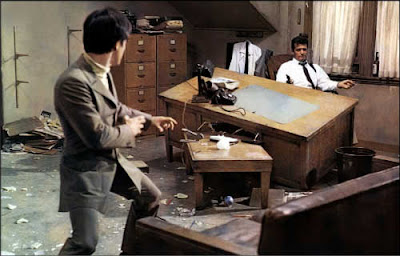Marlowe
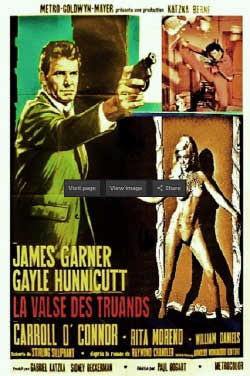
Director: Paul Bogart
Year: 1969
Rating: 6.5
The debate about
whether you can bring noir into contemporary times has been going on for
a few decades. Does it have to be in black and white to accentuate the shadows
and the moral hollowness, does it have to be set in the period of classic
noirs in the 1940's and 1950's when jazz played on the radio and in the nightclubs,
does it have to have a femme fatale with a brittle heart and a stiletto,
does $20 a day for a P.I. to risk his life make sense. I would say yes. There
have been a few decent noirs since then - Chinatown and Body Heat - but they
were set in the noir period even if filmed after it. Two Philip Marlowe films
best exemplify this, both with Robert Mitchum as Marlowe. Who was more noir
than the craggy faced Mitchum other than maybe Bogart. He was in a few classic
noirs in the 1950s but in the 1970's he played Marlowe in Farewell, My Lovely
in 1975 and The Big Sleep in 1978. Farewell takes place back in the 1940s
and is a good film while for reasons that make little sense The Big Sleep
was set in contemporary London and is as dead and rancid as horse meat.
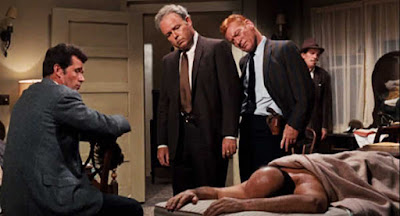
This film made in 1969 and set in that time
follows the Raymond Chandler book, The Little Sister, plot wise very closely
but they squeeze the pulp out of the noir like the cheap orange juice on
the grocery shelves. Screenwriter Stirling Silliphant (In the Heat of the
Night, Charly) and director Paul Bogart announce in the opening credits that
noir is not their intention when a cheery pop song is played and Marlowe
(James Garner) goes into a motel with a bunch of hippies outside. They take
the novel and throw away the guts and turn it into a basic standard Private
Eye film. Not a bad one but still this is Chandler. It deserved better. It
is a brilliant book, so steeped in noir and darkness that you wonder where
the sun went.
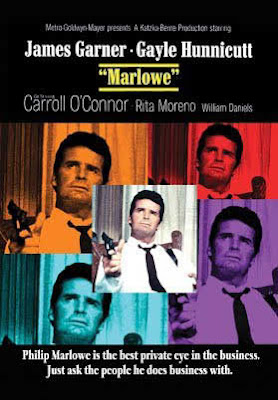
When it was published in 1949, it had been
six years since Chandler's last book, Lady in the Lake. For as much as Chandler
is revered now, that wasn't the case back in the early 40's and his income
from his books and movie deals was barely enough for him and his wife to
live on. Then Hollywood came calling. They wanted his help on the script
of Double Indemnity. Billy Wilder wanted to make the James Cain novel into
a film, but Cain wasn't available and his usual writer Charles Brackett thought
the book disgusting and didn't want to get near it. It was a tough book to
turn into a film because of the limits the Code imposed on films at the time.
Wilder read Lady in the Lake and asked Chandler to come on. Chandler thought
Cain was a hack but still demanded $250 a week. They told him they had $750
in mind. It was more than Chandler had made since his days as an accountant.
Within a few days Wilder and Chandler hated one another. Chandler walked
out a few times but they brought him back.
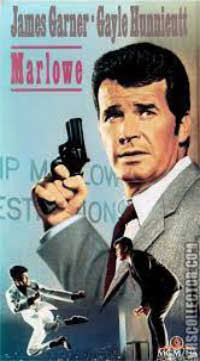
When the film was a critical and box office
hit, Chandler was gold and went to work on an original script for the Blue
Dahlia. He had to rush it because Alan Ladd had to go off to war in a few
weeks and they wanted one more film from him. He knocked it out quickly and
the director George Marshall filmed it as the pages came in. Then suddenly
no more pages. Chandler couldn't figure out who the killer was. He had planned
on it being one of the three navy friends but the navy said no. So, he told
the producer John Houseman that he could only finish it if he stayed home
and stayed drunk with six drivers on hand to rush his pages to the studio.
Houseman agreed and the film was finished though the killer is a reach. He
called Veronica Lake, Moronica.
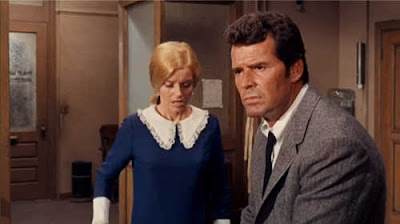
In the same year of 1946 Hollywood came
out with The Big Sleep without Chandler helping out. In the much-told
story, he was asked who killed one of the characters as the book was confusing
- Chandler had no idea. A few projects fell through and the popularity of
The Big Sleep gave a huge bump to his book sales. He wanted out of Hollywood
- it paid well for shoddy work - but there was also a clause in his contract
that he could not write for himself. He fought the studio and by the time
the contract was void, he was bitter. And he wrote The Little Sister which
delves into Hollywood much more than the film does. The owner of the studio
says with 15,000 theaters we can produce dreck and still make money.
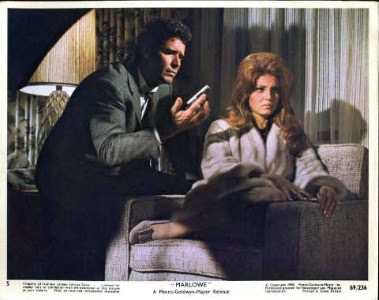
It is a bitter, cynical book with Marlowe
sick of the whole world. There are a few lengthy passages of him just in
near stream of conscious prose venting and it is brilliant. The film captures
some dialogue from the book but Silliphant said Chandler's language was too
old. Fuck him. When the cop played by Carrol O'Conner at the end goes into
a rage, that is Chandler speaking. Couldn't they have even used "She smelled
the way the Taj Mahal looks in the moonlight"? I want to try that line someday.
The ending of the book is as convoluted as a politician's morals and I am
not exactly clear who killed who and for what reason. The film doesn't quite
understand it either.
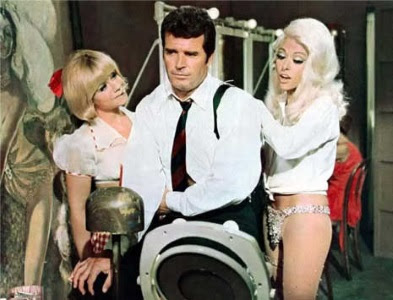
A young woman named Orfamy Quest (Sharon
Farrell) looking as innocent as primroses and lavender comes into town from
Manhattan Kansas looking for her brother Orrin (Roger Newman) who hasn't
written home in months. She has his last address and Marlowe begins his habit
of finding dead bodies. It leads him to a famous actress Mavis Wald (Gayne
Hunnicutt) who appears to be being blackmailed with some pictures of her
cavorting with a mobster (H.M. Wynant). If made public, it could ruin her
career. The book's pictures of the two of them having dinner and a newspaper
date is much smarter. Mavis's friend is played by Rita Moreno who makes a
sexual bid for Marlowe like he is the favorite running at Pimlico. A few
more dead bodies show up.
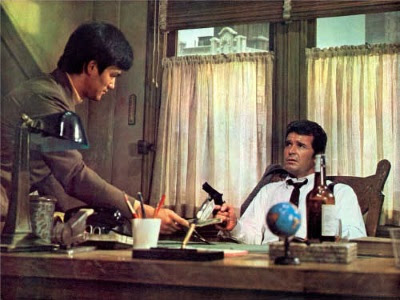
Of course, the film is mainly famous now
for Bruce Lee's scene of him busting up Marlow's office with a few karate
chops and kicks and the finale kicking the overhead light. And it is infamous
for the scene on the high terrace when Marlowe implies he is gay and Lee
loses his cool. If they ever get around to sensitizing films as they are
beginning to do with books, this scene would be my candidate to be cut. A
decent film, Rockford, I mean Garner is good but as noir as a picnic, a good
cast though far from first stringers - it just tries to modernize it in the
worst ways - the pop songs, the hippies, giving Marlowe a girlfriend, the
gay hairdresser next door, having the Moreno character as a strip tease artist
rather than a sex bomb actress are horrible decisions. Read the book. Then
watch the movie.









